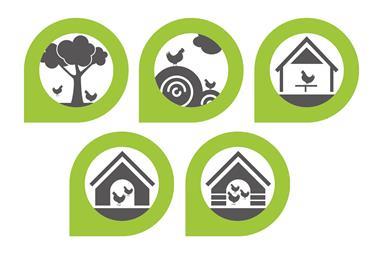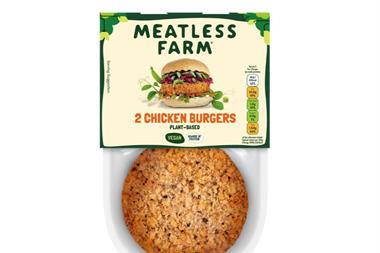
Red Tractor has warned it may have to re-evaluate its future advertising plans after AHDB announced a decision to end its funding of the food assurance scheme.
The levy board started funding Red Tractor following an industry consultation in 2008 – which supported the development of a comprehensive food quality assurance scheme to consolidate farm audits and the development of a single label, under the existing Red Tractor brand.
AHDB funded Red Tractor to the tune of about £250,000 last year. However, its board this week announced it was “no longer appropriate to provide this annual seed corn funding as Red Tractor is financially established and self-sustaining”.
It comes as AHDB this year saw its own budget cut by £8m after votes to to abolish both its horticulture and potato levies in the spring, which also led to a host of redundancies over the summer.
The decision has taken effect from this financial year. However, AHDB stressed the scheme had been informed future funding “could be provided if specific projects were identified that would be to the benefit of levy payers”.
Can AHDB evolve fast enough to stop more sectors rejecting levy?
AHDB chair Nicholas Saphir said the levy board’s position remained that farm assurance was “necessary and important to farming success, as a consumer benchmark denoting safety, quality and provenance and in helping farmers achieve premium prices where food is produced to particular standards”.
But given the scheme was now well-established, it no longer required the basic annual financial support of AHDB, he added.
“In addition, where there are issues, AHDB will continue to ask the tough questions and use its independence and evidence-based approach to facilitate the finding of solutions between Red Tractor and its stakeholders,” Saphir said.
AHDB added that the funding decision had also followed feedback from levy payers on its sector councils who had expressed concerns over “a perceived lack of clarity and understanding by consumers, some stakeholders, levy payers and the industry of the role of Red Tractor”.
This extended to whether it was “a robust baseline assurance scheme or a marketing opportunity to achieve a premium, or both, and if both, whether that is possible without multiple levels of standards”.
Other feedback included questions over whether the marketing of Red Tractor was effective in defending the market and/or achieving a premium; and the effectiveness of the current assurance process, the relevance and value of some of the existing standards and a perception that there was “some inconsistency in their application”.
There was also concern some producers “are forced to operate at higher standards than needed for the markets they serve and are getting no premium for doing so”, AHDB said.
AHDB announces £8m in cuts following vote to abolish horticulture and potato levies
“The industry is about to experience a period of considerable change and it is AHDB’s absolute determination to ensure that we are spending levy payers’ money in ways that deliver value by supporting them in successfully and profitably facing the future,” said Saphir.
AHDB is also gearing up for votes in the new year on the future of its remaining compulsory levies in the beef & lamb, pork, dairy and cereals & oilseeds sectors, which could further reduce its operating budget in future.
Responding to the announcement, Red Tractor said it was “disappointed” but stressed it was “focused on delivering for our members and we continue to listen to them, sharing their ambition for greater promotion of British food and farming”.
A spokesman added: “Regrettably, AHDB’s funding decision means we will now need to reconsider our advertising plans, which we understand will come as a disappointment to farmers and the wider food supply chain.”
Red Tractor ran its latest eight-week ad campaign – targeting 45 million people through a variety of slots on ITV – in March. The push followed a successful run in 2020 which was seen by at least 37 million people.



















No comments yet